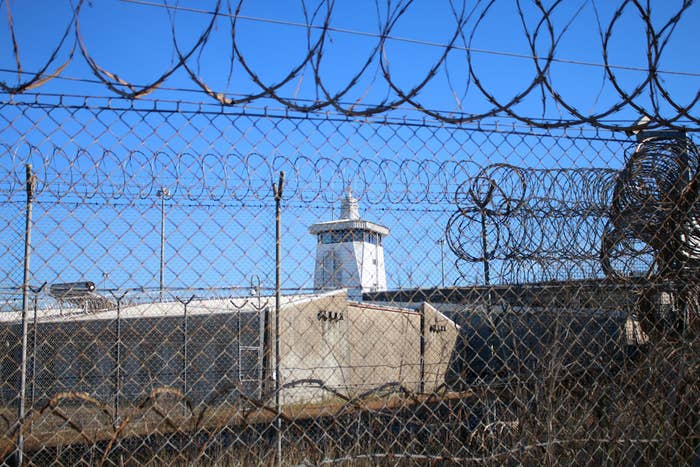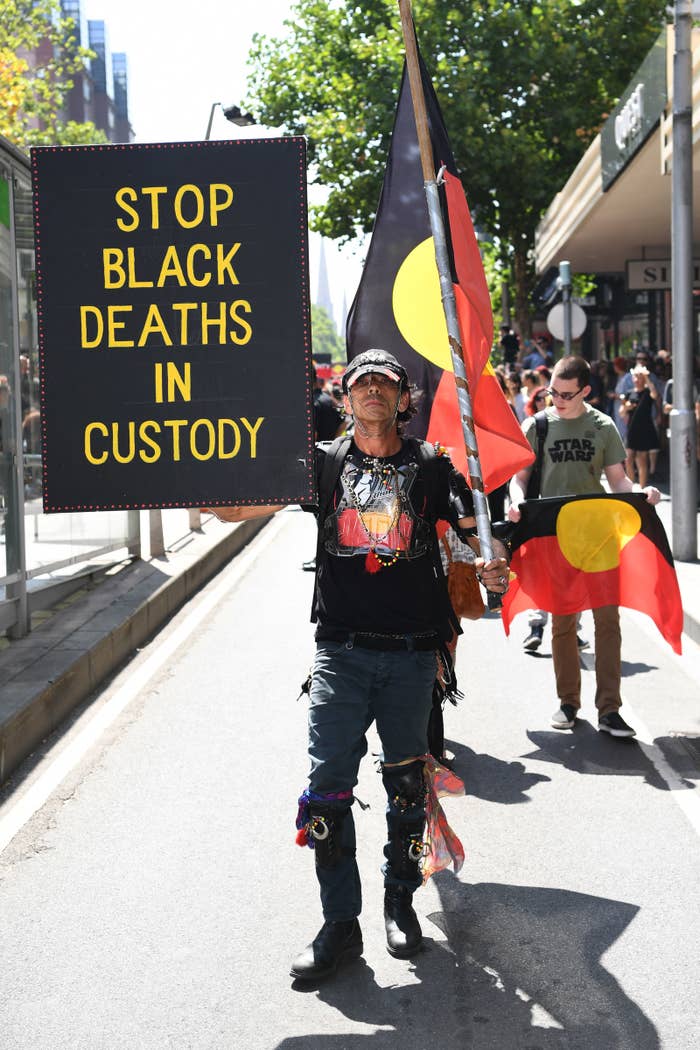
Australia is still locking up Aboriginal and Torres Strait Islander people at a far greater per capita rate than non-Indigenous people, and sweeping changes to the criminal justice system are needed to address this, according to a new report from the Australian Law Reform Commission (ALRC).
The Pathways to Justice report, released on Wednesday morning, contains damning information on the disproportionate incarceration of Indigenous people, who make up 2% of the general population but 27% of the prisoners.
Among its 35 recommendations are a national inquiry into child protection laws and processes that affect Indigenous kids; criminal justice targets to reduce Indigenous incarceration; changes to bail and sentencing laws; and directions that state and territory governments should abolish laws that land people in jail for unpaid fines, and introduce custody notification services for when Indigenous people are taken into custody.
Damian Griffis, co-chair of Indigenous justice advocacy group Change the Record, said the report provided a "clear roadmap for change".
"The Royal Commission into Aboriginal Deaths in Custody [in 1991] found that Aboriginal and Torres Strait Islander people were being over-imprisoned because the justice system is unfair and discriminatory," he said.
"Twenty-seven years later the ALRC has found that the over-imprisonment rate is getting worse. Aboriginal and Torres Strait Islander people are more likely to be sentenced to prison than non-Indigenous people convicted of an offence. Aboriginal and Torres Strait Islander families and communities continue to be torn apart by increasing numbers of men, women and children being sent to prison."
The ALRC called for the federal government to hold a national inquiry into child protection. It said the issue fell outside its terms of reference, but stressed there is such a strong link between child protection, juvenile justice and being incarcerated as an adult, that it could be considered a “key driver” of adult incarceration.
It also said no person should land in prison due to unpaid fines, and asked all jurisdictions to get rid of such laws.
One of the most prominent examples is that involving young Indigenous woman Miss Dhu, who died in police custody after being locked up in August 2014 for $3,622 in unpaid fines. She died within 48 hours of being taken into custody in South Hedland in Western Australia’s Pilbara region.
Miss Dhu died an agonising death from septicaemia and pneumonia stemming from an infection from a broken rib that was the result of domestic violence. She was taken to see doctors three times while in custody – the first two times, medical staff thought she was pretending to be in pain, and on the third, she was pronounced dead.
The coroner, who ruled Miss Dhu’s death was the result of "unprofessional and inhumane" conduct from police officers, recommended Western Australia adopt a custody notification service (CNS) – another recommendation the ALRC report calls for on a national level.
The report says all jurisdictions should introduce a legal requirement that police contact an Indigenous legal service or equivalent "as soon as possible" after an Indigenous person is detained in custody for any reason.
It also calls on governments to introduce a maximum time period in which the notification must be made.

The report outlined various statistics about the extent to which Indigenous Australians are disproportionately incarcerated, noting they are 12.5 times more likely to be in prison than non Indigenous people. Indigenous women are 21.2 times more likely than non-Indigenous women to be in jail. In 2016, around 20 in every 1,000 Aboriginal and Torres Strait Islander people were in jail.
The over-representation is a "persistent and growing problem", with Indigenous incarceration rates increasing by 41% between 2006 and 2016 according to ALRC commissioned research.
There are numerous social, political and economic factors that contribute to Indigenous incarceration, the report says.
Indigenous people are also more likely to be sentenced to a short term of imprisonment. Of the Indigenous people sentenced in 2015-2016, up to 45% received a term of six months or less, with few community-based sentences handed out.
“Aboriginal and Torres Strait Islander peoples are being incarcerated for lower order offences for which diversion and rehabilitation may be a more appropriate response,” the report states.
It also commented specifically on the incarceration of Indigenous women, saying family violence was a crucial factor and calling for specific prison programs to be developed.
"Available research suggests that Aboriginal and Torres Strait Islander women experience family violence at a higher rate than the broader Australian community, and that the majority of Aboriginal and Torres Strait Islander women in prison have experienced physical or sexual abuse," the report says.
The ALRC noted the significant economic and social cost of locking up Aboriginal and Torres Strait Islander people.
“Incarceration is expensive: it has been estimated that the total justice system costs of Aboriginal and Torres Strait Islander incarceration in 2016 were $3.9 billion. When the costs of Aboriginal and Torres Strait Islander incarceration are broadened beyond those directly related to the criminal justice system to include other economic costs, the estimated cost rises to $7.9 billion.
“As well as the cost of imprisonment to the State, incarceration can also have a broader social cost, particularly when concentrated in a particular community.”
Other recommendations included “justice reinvestment”, or diverting funds for criminal justice to community-led programs that address drivers of crime and incarceration.
“Given the significant and growing economic and social costs of incarceration, the ALRC suggests that there is a compelling case for Australian governments collectively to invest in developing appropriate and more effective alternatives to imprisonment for Aboriginal and Torres Strait Islander people,” the report states.
The report also called on state and territories to repeal mandatory sentencing legislation that had a disproportionate effect on Aboriginal and Torres Strait Islander people; fund more sentencing courts for Indigenous people; develop prison programs, including those for Indigenous women specifically; and institute cultural changes within the police force.
